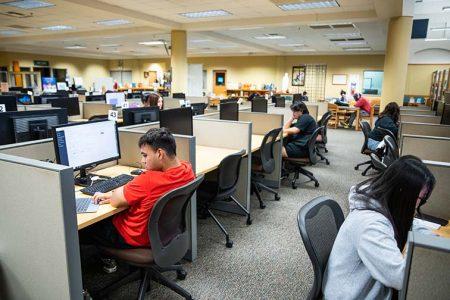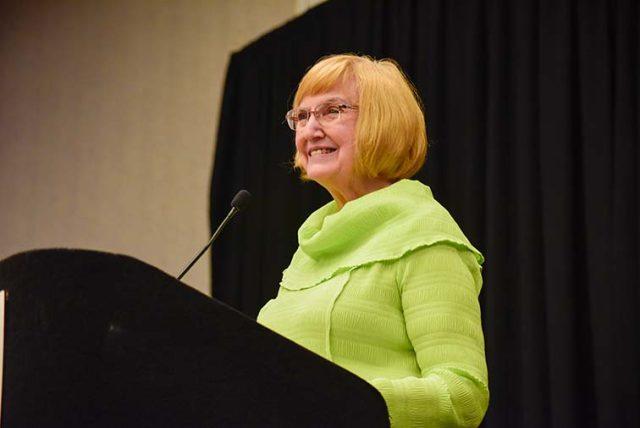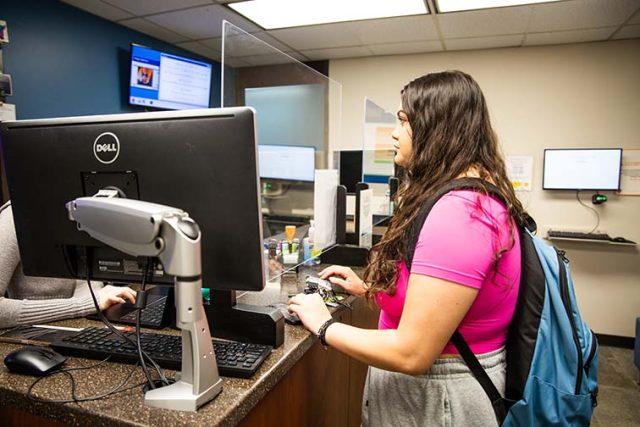 XAVIER BOATNER
XAVIER BOATNER
campus editor
xavier.boatner@my.tccd.edu
TCC’s WebAdvisor has officially shut down and new systems are being employed for student workers.
According to the TCC’s WebAdvisor official website, the site will no longer be available after April 1.
“All services previously provided by this site have been successfully migrated to other systems,” the statement said. “Registration and student-related functionality will continue to be available through MyTCCTrack. Other WebAdvisor functionality has been migrated to Hello! TCC.”
This message had been available on WebAdvisor’s official site for quite some time, and having it shut down may not have come as a surprise to many students. Some students believe WebAdvisor has long since become outdated.
“I think I’ve known about the shutdown for a good while now,” NW Campus student Robert Flores said. “It will impact me but not very much. I’ll just have to use the actual TCC website. WebAdvisor looks extremely dated, so I think that they’re shutting it down because all of its features are available through the TCC home website.”
On the flip side, there are some students who believe the shutdown will lead to confusion and won’t be helpful for certain people going forward.
“Students nowadays love fast results and without this in place, I think it will create frustration and confusion with students and staff,” NE Campus student Margarette Meyers said. “In 2023, we do not need any more hardships, especially with the teacher shortages and everything else that is happening in the world. Going to college needs to be as easy and accessible as possible.”
Despite not many campus-goers being affected by WebAdvisor’s absence, there are still a select number of people on campus who have been impacted by the change. The end of WebAdvisor has made it so student workers and TCC staff will need to rely on systems unfamiliar to TCC heading into the future.
Among these systems is the implementation of TimeClock Plus, an automated cloud-based system designed to streamline the time management process for supervisors and student workers.
During a virtual training session held March 28, “TimeClock Plus will be what student, part-time and full-time, non-exempt employees will use to manage their time,” Ronnie Watkins, the TR executive director of finance and administrative services said. “Any student who does not work for TCCD will not use TimeClock Plus.”
This system offers “automated employee time tracking and scheduling, leave and absence management, document management, reporting and analytics and more, all of which are available on mobile. Our solutions also seamlessly integrate with major payroll systems as well as our extensive portfolio of time collection solutions,” according to TimeClock’s official website.
“We needed to update our tools,” Watkins said. “We needed a more reliable tool for our time management and our lead management.”
Watkins said making the change to TimeClock was meant to help simplify the process of entering time information for student workers.
“For the students, it should be a very easy piece of software,” Watkins said. “You log in, and you clock in. You log in, and you clock out. That’s really all they need to know.”
A shift towards these newer systems could inspire a change in the “culture” of student workers and supervisors, and help encourage them to better manage their time, Watkins said.
“We’re looking to change the culture,” Watkins said. “Not only a change in the culture with our supervisors to help us manage the time, but to manage the relationship between the supervisor and the employee, which in this case are student workers, and they need to know how important this all is.”
Watkins said one of the reasons for wanting to “change the culture” was to make sure employees practiced better work ethics.
“Some supervisors get in the habit, even with these timecards, where they forget or don’t approve time,” Watkins said. “Even today, we’re manually sending emails out every week to our supervisors saying ‘Don’t forget to turn in your time,’ ‘Don’t forget to approve the time on the timecards,’ so it really is a culture thing. Just like with the students, it’s their culture that needs to change.”
Taking responsibility is one of the primary lessons Watkins hoped student workers and supervisors will take away from the implementation of the new TimeClock system.
“It’s all about accountability,” Watkins said. “That’s a great thing to learn in college, and that’s why we’re trying to change the culture here.”


































